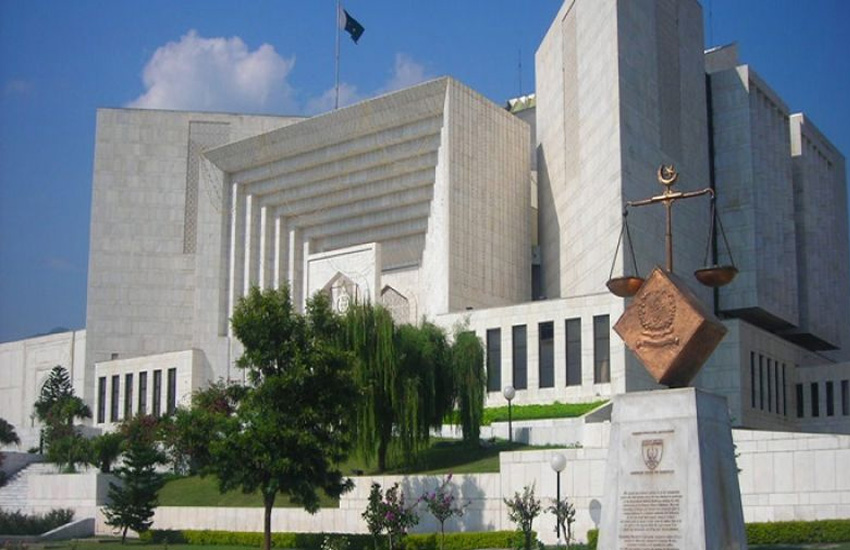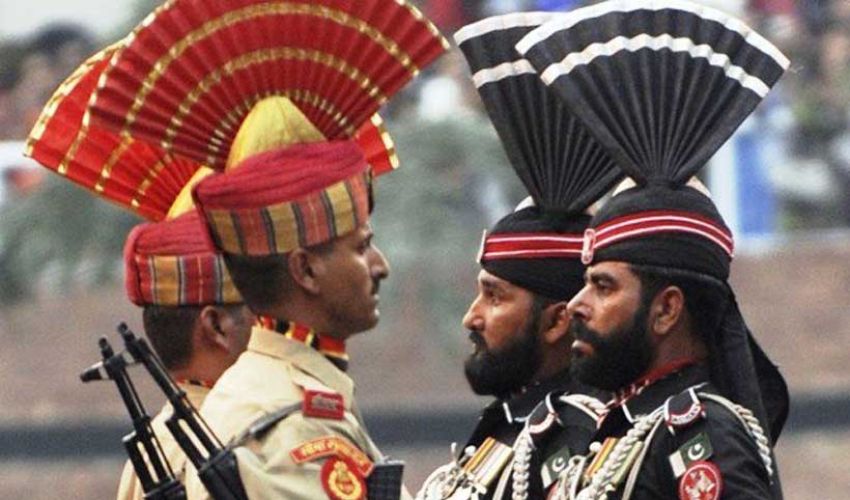The Supreme Court has suspended a decision of the Peshawar High Court and the Election Commission of Pakistan to distribute the reserved seats in all legislatures among other parties instead of allotting them to the Sunni Ittehad Council (SIC).
A three-judge bench of the court heard the case related to the reserved seats of the Sunni Ittehad Council in the National as well as all provincial assemblies. The bench was headed by Justice Mansoor Ali Shah and comprises Justice Muhammad Ali Mazhar and Justice Athar Minallah.
The attorney general said the court should clarify that only the seats that were distributed beyond each party's ratio were being suspended. At the AGP's request, the court clarified its order.
The court said the seats given to political parties in redistribution beyond their proportion in the assembly are suspended.
Also Read: PHC rejects Sunni Ittehad Council's request for reserved seats
The AGP also requested for constitution of a larger bench to interpret Article 51 of the Constitution. The court directed that the case for a larger bench before the committee concerned and adjourned the hearing until June 3.
The Supreme Court will hear the case on a daily basis from June 3.
The court ruled that the votes cast by the members so far and their opinion on legislation shall not be considered suspended. The order will not apply retrospectively, but from now on.
For the first time in judicial history, a case for interpretation of Article 51 has been filed, Justice Shah remarked.
The attorney general requested for a larger bench to hear the case under the Practice and Procedure Act, as per the ruling. The AGP objected to the writing of the word “additional members in proportional representation” in the decision.
“The court has yet to decide whether there was proportional representation or not,” Attorney General Mansoor Usman Awan said.
The court removed the word “proportional representation” from the order on the request of the AGP.
The proceedings
Earlier, the court rejected an objection from the federal government to the three-member bench hearing the case. According to details, the objections were raised over the bench by the women lawmakers nominated on the reserved seats as well as the federal government. They adopted the stance that a five-member bench could hear the case under the Practice and Procedure Act.
Also Read: PHC stops National Assembly reserved seats members from taking oath
Additional Attorney General Aamir Rehman told the court that only a larger bench can hear the appeals, but the court rejected the objection. Justice Shah remarked that if the appeals are declared admissible, any bench can hear them, adding that even a two-member bench can hear them at this stage.
Justice Shah inquired how political parties can be allocated seats beyond their proportion. "Can the remaining seats also be given to them? Is there anything like that in the law? If this is not in the law, then is it not against the constitutional scheme?" he asked.
Justice Mazhar asked if the election commission distributed the remaining seats to the same parties using suo motu authority. Justice Minallah asked if it was right to ignore the mandate of a political party in such a direct manner.
Justice Shah remarked that he wants to hear the case on a daily basis. The intention of the Constitution is to protect the public mandate, giving a party's seats to another is against the mandate. "It is clearly written in the Constitution that the representation in parliament will be proportional," the order stated.
Justice Minallah asked on what basis seats were distributed to other parties by the election commission. "How was a party deprived of reserved seats after recognizing it as a parliamentary party?"
Justice Mazhar asked if a party can be given more seats than what it won.
Lawyer Faisal Siddiqui told the court that the election commission had recognized the Sunni Ittehad Council as a parliamentary party. The commission is of the opinion that the seats cannot be left vacant.
It should be noted that the Sunni Ittehad Council as well as the Khyber Pakhtunkhwa Assembly speaker had filed appeals against the decision of the Peshawar High Court on the issue of reserved seats. The Election Commission of Pakistan had decided not to allocate reserved seats to the Sunni Ittehad Council, which was upheld by the Peshawar High Court.
On March 14, the Peshawar High Court had rejected the applications of the Sunni Ittehad Council (SIC) seeking reserved seats and against their division among other political parties.



























